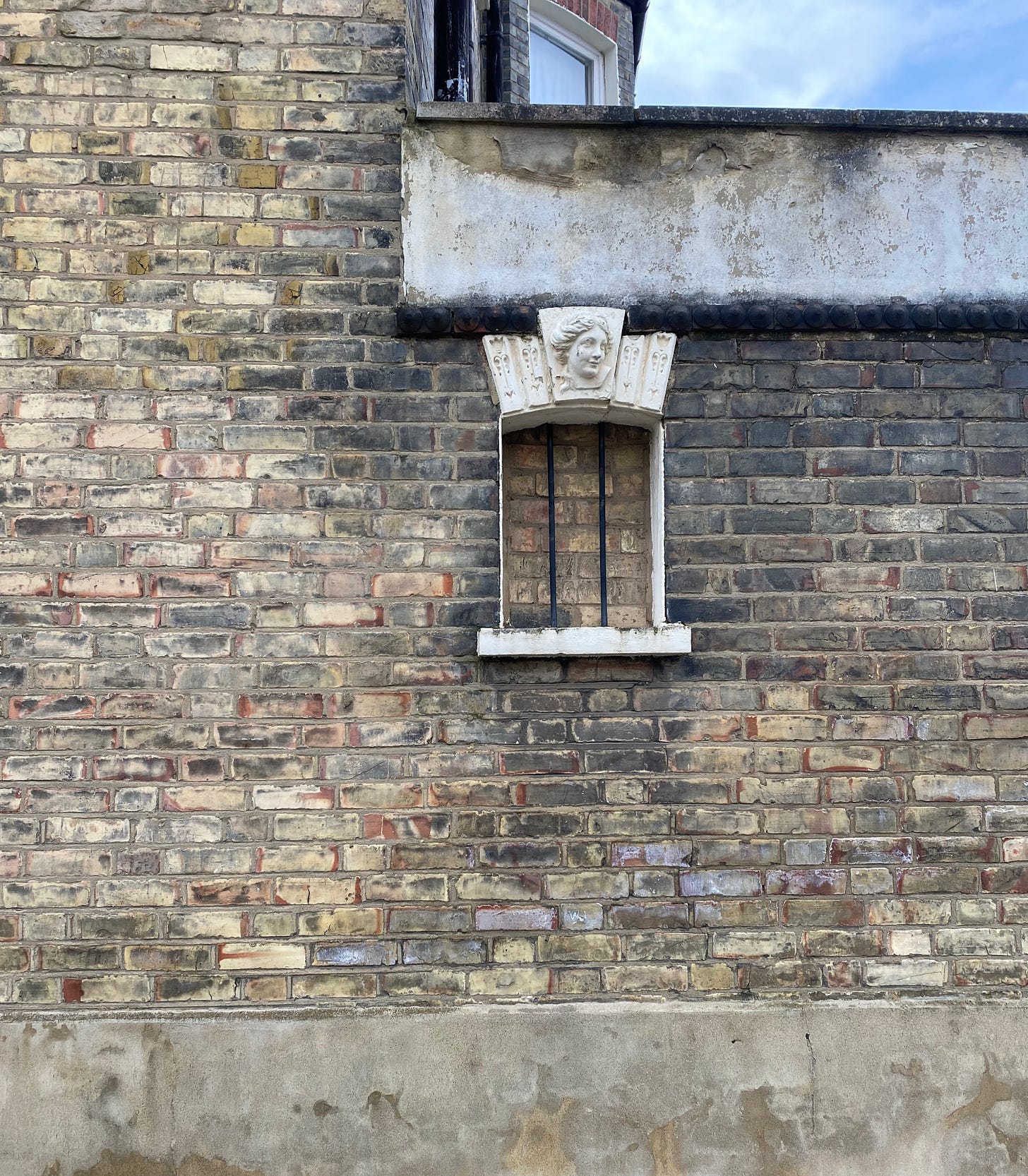City of the Dead
Lost rivers, a bus ride through London and an awkward post-script, from the country.
In a hotel in central London, I examined my jawline. It has started to collapse backwards into senescence, as if it’s forgotten how to remain straight and firm.
Being back in London makes me feel old. It’s been a long two years since I left. Fashion seems to have regressed to my childhood.
Things I can’t believe are back: those big, plastic, coloured rings. Safety pin jackets. Low rise bootcut. Platform trainers.
Y2K, take me home (actually, no, don’t).
And men’s hairstyles, the kind of hairstyles I thought existed purely as a warning to future generations? They’re back. Mullets. Frosted tips. What the actual. Are you shitting me?
I’m heading out to walk the streets, for a glorious lonesome day. Maybe I’ll find an awkward encounter in the city. My son is at a sleepover, Joel is manning the house. I am loose in London. I want to grab the day in my two arms.
London humbles me with its indifference.
In the hallway hotel, even the chambermaid has a grievance. She’s on the phone, barking orders to someone in a Russian accent.
“I told you, he want to be hit.”
Who is this masochistic gentleman and what are they doing for him, I wonder, as I pass.
Can’t believe how exhausting I find London now. Did I really used to negotiate this hellscape day to day? The relentless crush of people, the inconvenience and indifference. It scares me, in a new way. I’m not sure if London was always this scary. It feels more desperate, its people more febrile and edgy.
A friend who lives there tells me I am not imagining it. It’s the cost of living crisis, she says. People are desperate and have no money. They’ll go for your phone, your jewellery. You probably won’t get stabbed though, she offers in an upbeat tone.




